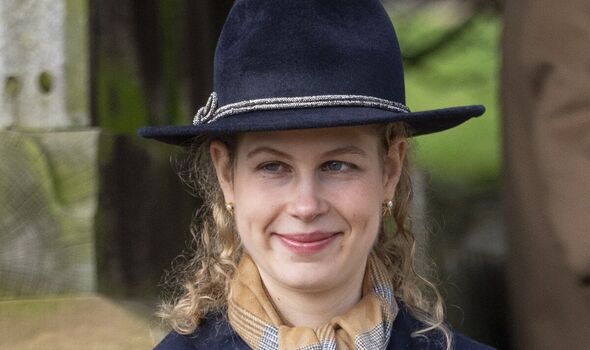The News
Lady Louise: The Future of Royal Titles and Responsibilities
In the world of royalty, few names resonate as much as Lady Louise Mountbatten-Windsor.
As the youngest granddaughter of the late Queen Elizabeth II and Prince Philip, she's currently focused on her studies at the University of St. Andrews.
With summer exams looming, Louise is diving deep into her academic endeavors, but her future role within the royal family is sparking a lot of discussion.
Amidst her studies, speculation continues to swirl around whether Lady Louise will eventually take on the responsibilities of a working royal.
A significant part of this conversation revolves around her title.
The 1917 Letters Patent, issued by King George V, is at the center of this debate.
This historical document outlines who in the royal family is entitled to specific titles, including prince or princess, and the honorific HRH, or His/Her Royal Highness.
What makes these Letters Patent particularly interesting is their implications for gender equality.
They favor male heirs over female ones, raising questions about how royal titles are distributed.
For instance, when Prince Edward married Sophie Rice-Jones in 1999, they decided that their children would not use the HRH title, departing from the traditional interpretation of the Letters Patent.
This decision came during a time when the royal family was under intense public scrutiny, particularly following the tragic death of Princess Diana.
Lady Louise, born to Prince Edward and Sophie, has been known by her courtesy title of Lady.
While there's ongoing speculation about her possibly being elevated to HRH status, opinions remain divided.
Some believe that the precedent set by her parents should stand, while others argue that the changing dynamics of the royal family might open new doors for her.
As the royal family faces a reduction in active members due to age and retirement, the possibility of Lady Louise stepping into a more prominent role grows stronger.
With King Charles advocating for a streamlined approach to royal duties, the landscape of royal engagements could be shifting, potentially paving the way for her involvement.
Turning 20 this year, Lady Louise is navigating her own path while balancing her public image and personal privacy.
Her choice to retain the title of Lady reflects a desire to focus on her education without the constant glare of public attention.
Yet, the tension between her private life and potential royal obligations continues to be a topic of interest.
The question remains: what does the future hold for Lady Louise?
Will she embrace a full-time royal role, or will she choose to maintain her distance from the spotlight?
For now, her primary focus is on her studies, but the royal family's evolving dynamics may soon call her to action.
As discussions about her future unfold, it's clear that Lady Louise's journey is just beginning.
Whether she becomes a working royal or continues her life as a private citizen, her story is one to watch.
The complexities of modern monarchy are encapsulated in her situation, reflecting broader societal changes and expectations.
So, what are your thoughts on Lady Louise's potential future?
The royal family is undoubtedly undergoing a transformation, and her role could be pivotal.
Share your opinions and insights; the conversation is just getting started.
Stay tuned for more updates on this intriguing royal narrative!






























































